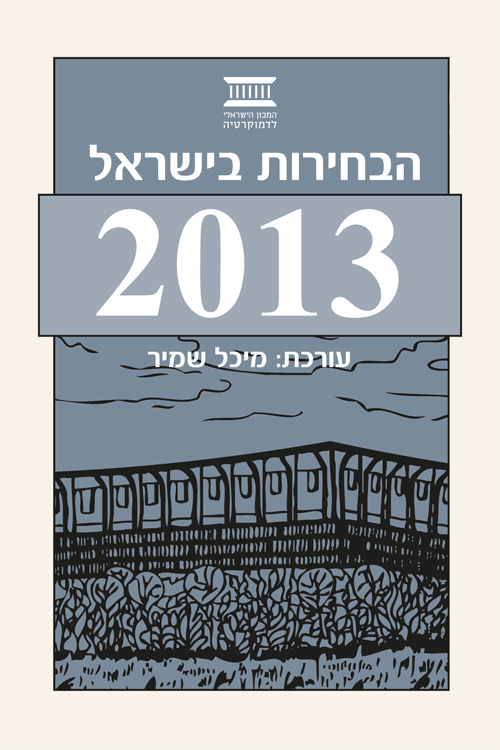The Elections in Israel 2013
- Edited By: Michal Shamir
- Publication Date:
- In Collaboration with: Transaction Publishers
- Cover Type: Hardcover (English) Download (Hebrew)
- Number Of Pages: 312 Pages
- Center: Center for Democratic Values and Institutions
An in-depth analysis of the 2013 Knesset elections from diverse perspectives. Illuminates the complex situation of contemporary Israeli democracy today and explores the challenges, successes and failures it faces.
The elections for Israel's 19th Knesset, which ushered in the third Netanyahu government, were held on January 22, 2013. This anthology presents an in-depth analysis of these elections from diverse perspectives. Its articles illuminate the complex situation of contemporary Israeli democracy and explore the challenges it faces, as well as its successes and failures. In particular, the book examines the extent to which office-holders in Israel represent their voters and give voice to their needs, voter participation in Israeli elections, limits on the right to run for office and internal party democracy. It is essential reading for anyone interested in understanding current trends in Israeli politics.
From the description of the English edition of this book, published by Transaction Publishers:
The chapters in this collection shed light on different facets of Israeli democracy. Yaron Ezrahi provides a skeptical perspective on prospects for democracy. Gayil Talshir explains the party system’s slowness to respond to citizen demands and to social movements. Michal Shamir and Keren Weinshall-Margel explore the politics of the right to be elected to the Knesset. Nir Atmor and Chen Friedberg highlight the decline in participation in Knesset elections in the Periphery versus the Center. Assaf Shapira and Gideon Rahat reveal the complexity of inter-party democracy. Dganit Ofek analyzes the stability of government coalitions. Gal Levy examines Mizrahi Jews and the Shas Party. Mtanes Shihadeh discusses the voting patterns of Israeli Arabs. Asher Cohen focuses on religious Zionism and the success of the renewed Jewish Home Party. Michal Shamir and Einat Gedalya-Lavy document a gender gap in voting. Elections in Israel 2013 analyzes the give-and-take between the public and its leaders that is at the heart of elections. In doing so, it illuminates the role of elections in providing representation for different groups in Israeli society and in giving voice to their political choices.
This book is available for free download in Hebrew. The English edition can be purchased on Amazon.com.
Michal Shamir is the Alvin Z. Rubinstein Professor of Political Science at Tel Aviv University. She has edited IDI analyses on the elections in Israel for each Knesset election since 1996.

